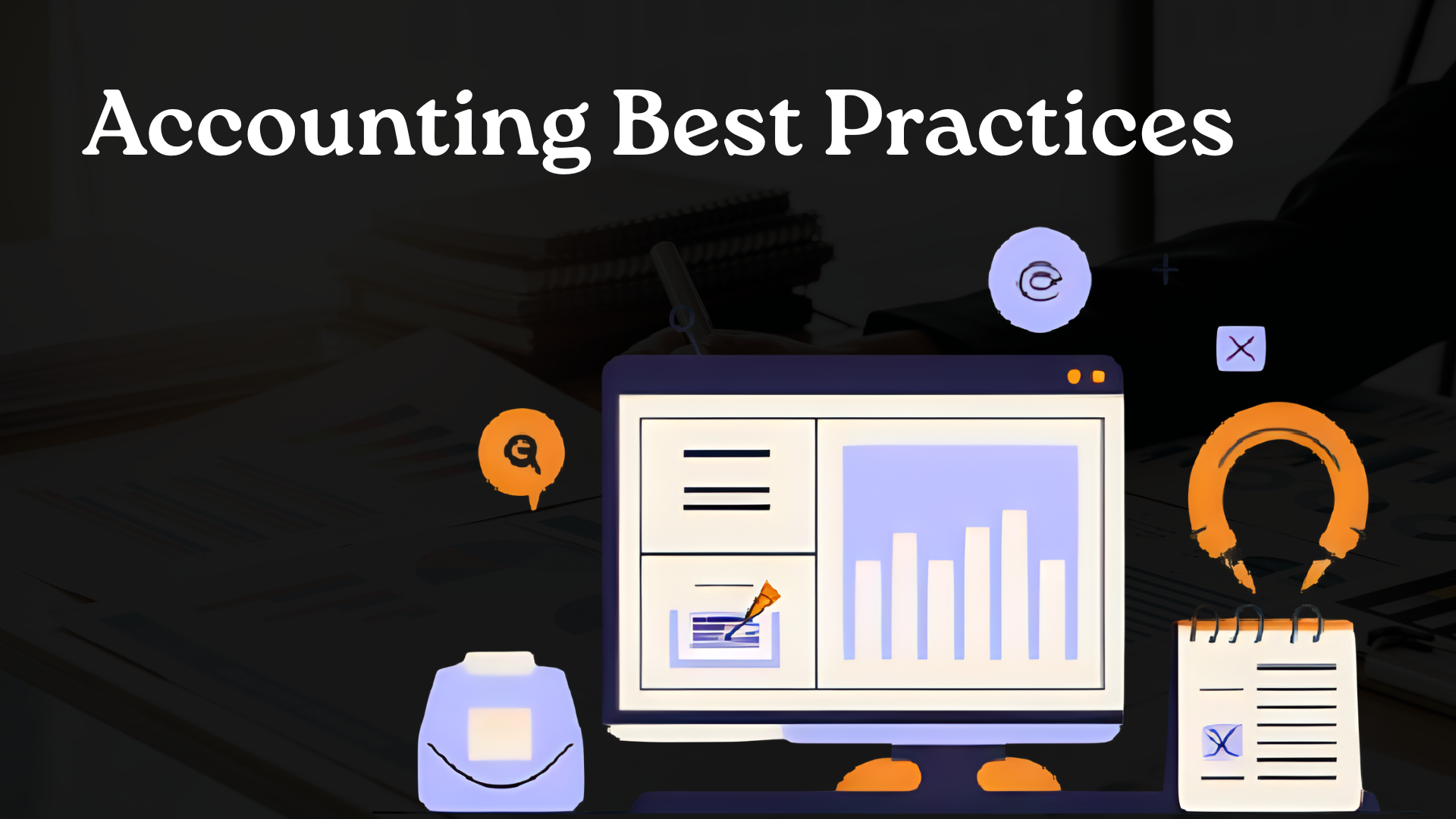In today’s fast-paced and demanding work environment, mastering delegation and time management skills is cruci...
Brickwork Blogs


Running a
small business can feel like juggling multiple responsibilities at once. If
your finances aren’t in order, everything can start to feel shaky.
It’s
essential to separate your personal and business accounts, manage cash flow
effectively, select the right software, and prepare for tax time. This goes
beyond just balancing the books; it's about creating systems that support your
growth.
While many
guides offer general finance tips, this blog digs deeper into what truly works
for small businesses. You’ll find practical advice on strategic procedures,
forecasting, and hiring.
If you
want to move from reacting to your financial situation to making informed
decisions, this blog is for you.
The
success of a small business greatly relies on a solid accounting foundation.
60% of owners lack confidence in their financial abilities, and over 70% do not hire an accountant. Getting your finances right from
the start boosts your success and keeps you out of compliance-related troubles.
In this context, here are some beginner’s tips:
One of the
most frequent and expensive mistakes that entrepreneurs make is mixing personal
and business expenses. To keep things organized and stress-free, it’s a good
idea to open a dedicated business bank account and
get a separate credit card for your business transactions. This not only simplifies your tax
preparation but also helps maintain clear financial reports. Plus, it offers an
extra layer of protection for your assets in the event of audits or legal
challenges. Keeping your finances separate can save you a lot of headaches down
the road!
Cash
accounting is straightforward! You record income when it is received and
expenses when they are paid. This simplicity makes it especially appealing for
startups. On the other hand, accrual accounting offers a more nuanced view by
recording income and expenses when they are earned or incurred, regardless of
whether cash has changed hands. This method can provide a clearer picture of
your business’s profitability, which is particularly valuable as your company
expands. The good news is that if your annual earnings are under $25
million, you
typically have the flexibility to choose either method in most countries.
Your chart
of accounts is crucial to the functioning of your accounting system. It’s like
a map that helps you sort through all your financial transactions, whether it’s
sales, expenses, assets, or liabilities. A well-organized chart not only
simplifies your reporting but also empowers you to make informed decisions for
your business. Yet another small business accounting best practice.
Also Read:
Finding the Best Online Bookkeeping
Services for Your Business
Reconciling
your accounts involves ensuring that your records align with your bank
statements. If you do this weekly, you’ll catch any missing payments or
mistakes early on, plus it helps keep fraud at bay. It only takes about 15 to
30 minutes each week, using a straightforward checklist, to keep everything in
check.
Handling
invoices manually can significantly hinder your cash flow and result in missed
payments. Instead, consider using accounting tools like QuickBooks, Zoho Books,
or Wave. These platforms can automate your invoicing process and send timely
reminders, making it easier for your clients to pay on time. This approach not
only helps keep your revenue on track but also saves you valuable time that you
would otherwise spend following up on overdue invoices. It’s all about making
your life easier and ensuring your business runs smoothly! The best accounting
hacks start with these tricks.
Check
Our Accounting Case Study!

As yor
business grows, so does the complexity of your finances. Knowing the difference
between bookkeeping and accounting is one of the small business accounting best
practices that helps you decide what to manage yourself, what to delegate, and
when to bring in expert support. Here's a clear breakdown:
|
Function |
Bookkeeper |
Accountant |
|
Primary
Role |
Records
day-to-day transactions |
Interprets
data, prepares reports, and handles compliance |
|
Tasks |
Invoicing,
categorizing expenses, bank reconciliation, payroll entries |
Tax
filing, budgeting, financial analysis, forecasting |
|
Tools
Used |
QuickBooks,
Xero, Wave |
Same
tools + Excel, ERP systems, forecasting software |
|
Timing |
Ongoing,
weekly or daily |
Monthly,
quarterly, or annually |
|
Goal |
Accuracy
in records |
Insights
for business decisions and compliance |
|
Business Size |
What You Need? |
Why It Works? |
|
Solopreneur |
Basic
bookkeeping can be DIY with software or delegated to a virtual assistant |
Keeps
costs low while maintaining control |
|
Team of
2–5 |
Bookkeeper
+ part-time accountant (or outsourced support) |
Balances
daily management with financial planning |
|
Scaling
Business |
Full-time
bookkeeper + accountant or CFO-level advisor (outsourced or fractional) |
Prepares
for investment, funding, and strategic growth |
|
Red Flag |
Why It’s a Problem? |
Recommended Action |
|
You’re
spending more time on books than running your biz |
Opportunity
cost is high |
Hire a
VA or outsource bookkeeping |
|
Tax
season = panic |
Indicates
a lack of organized records |
Work
with an accountant quarterly, not annually |
|
Cash
flow surprises |
Often
caused by delayed entries or no forecasting |
Use
tools + outsource cash flow management |
|
Late or
missed invoices |
Hurts
revenue and trust |
Automate
and delegate to a VA |
Virtual
accounting assistants offer a flexible and affordable solution for growing
businesses. They’re often part of the best accounting services for small
businesses, helping with day-to-day financial tasks without the cost of a
full-time hire.

In 2019,
the UK-based healthy snack brand Primal
Pantry closed due
to cash flow mismanagement, despite having solid sales. Delayed payments and
rising production costs outpaced their cash inflows, which ultimately led to
the closure. 82% of small businesses fail due to
poor cash flow management.
Then, the solution? Here are some simple practices for cash flow management
that small businesses can feasibly maintain:
·
Monitor
the weekly inflows and outflows:
Leverage
tools like Zoho Books and QuickBooks to stay updated on your cash inflows and
outflows. This will keep you safe from any future financial surprises!
·
Set
a 3-month cash flow forecast goal:
Forecasting
is one of the most overlooked cash flow accounting best practices for small
businesses. Use a simple spreadsheet or cash flow template from SCORE to project future income and
expenses.
·
Keep
an emergency reserve aside:
To protect
yourself from delayed client payments and seasonal lows, set aside an emergency
fund (e.g., three months of fixed operating costs).
·
Develop
clear payment terms and SOPs:
Create
detailed payment terms with as many pointers as you want, as long as you’re
clear and legally sound. Automate invoice reminders and assign someone (or a
VA) to follow up consistently.
When it
comes to managing finances effectively, selecting the right accounting software
can truly make a difference for startups and growing businesses alike. Whether
you're handling invoices independently or collaborating with a dedicated
financial team, it's essential to find software that strikes a balance between
accuracy, automation, and flexibility. You want a tool that simplifies your
processes without bombarding you with unnecessary features. The ideal
accounting software should help you feel in control of your finances, making
your work smoother and more efficient.
|
Tool |
Best
For |
Pricing
(Starts At) |
Key
Features |
Ideal
For Business Size |
|
All-rounder,
robust features |
$30/month |
Invoicing,
payroll, tax, inventory |
Solo to
50+ employees |
|
|
Collaborative
accounting |
$15/month |
Unlimited
users, expense tracking |
Freelancers
to SMEs |
|
|
Automation-focused
businesses |
$0–$15/month |
Workflow
automation, client portal |
Startups
& online biz |
|
|
Solopreneurs
needing free tools |
Free |
Basic
invoicing, accounting |
Solo
& micro businesses |
Tax season
is an ongoing commitment for any business owner. It’s not just a once-a-year
event! Staying organized and proactive throughout the year is crucial to avoid
the last-minute chaos that often comes with filing.
Here’s a
helpful guide to keep you on track:
·
Quarterly
Filing Checklist:
Regularly monitor your income, expenses, payroll, and estimated tax payments.
This proactive approach can alleviate stress when deadlines approach.
·
Managing
Taxes Like GST/VAT/Sales Tax: Consider
using tools like Avalara or TaxJar to simplify your tax calculations
based on your location. Automating this process can save you time and
headaches.
·
Watch
Out for Industry-Specific Red Flags:
Different industries have unique challenges. If you’re in retail, pay close
attention to inventory write-offs. If you provide services, be cautious when
classifying contractors versus employees to ensure compliance with applicable
laws.
·
Collaborate
with CPAs: Working
with a knowledgeable CPA can make a world of difference. They can help you
streamline your bookkeeping, guide you through quarterly reviews, and prepare
you for any potential audits.
1.
Home
office expenses
2.
Software
subscriptions
3.
Business
meals
4.
Startup
costs
5.
Training
6.
Travel
7.
Health
insurance
8.
Retirement
contributions
9.
Marketing
tools
10. Depreciation
By
implementing these best practices for tax reporting and compliance, you can
save thousands and avoid costly audits. With a bit of preparation and
diligence, you’ll set your business up for financial success.
If you
find yourself spending more than five hours a week tangled up in finances,
consider hiring a bookkeeper or a virtual assistant. This can free up your time to
focus on what drives your business forward.
Keep a
close eye on key performance indicators such as Gross Margin, Burn Rate, and
Net Profit Percentage. Regularly tracking these metrics will provide you with
valuable insights into your business's health and performance.
You
already understand the essentials, such as having clear Standard Operating
Procedures, organized financial records, the right tools at your fingertips,
proactive tax strategies, and effective cash flow management. But knowing what
to do is only the first step.
That's
where we come in. At Brickwork, our team of virtual
administrative assistants specializes in accounting and bookkeeping, so you
don't have to juggle hiring a full-time team or getting lost in endless
spreadsheets. We partner with founders, freelancers, and finance leaders to
create sustainable processes tailored to your needs, helping you grow,
regardless of your business size or industry.
Let Brickwork
be your trusted partner,
quietly supporting you as you take your next big leap forward.


